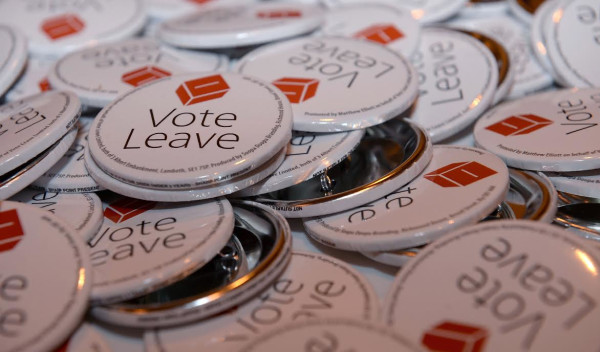
Article 3 / 9
2016 Review - A year to remember for investorsPolitical change ruffles region’s feathers

The first five months of 2016 were fairly benign for the UK and Europe in terms of geopolitical and economic events.
In March, the European Central Bank (ECB) extended its quantitative easing programme, including the purchase of investment grade corporate bonds, in an effort to boost European growth and inflation. But the big surprise – albeit an event that has not caused too much upset for UK investors – has been the result of the UK referendum in June.
The decision by 51.9 per cent of voters to leave the EU caused the FTSE 100 and 250 indices to plunge on June 24 before swiftly recovering. While the FTSE 100 index has powered back to move above the pre-Brexit June 23 level of 6,338.10 to hover close to 7,000, including a high of 7,097.50 on October 10, the FTSE 250 index has had more of a struggle.
The mid-cap index closed at 17,333.51 on 23 June and plunged as low as 14,967.86 by the following Monday. Five months later on November 22, the index has only moved slightly ahead of its pre-Brexit level to 17,679.06.
Part of the reason for the eventual rebound in UK equity markets is the fall in sterling, which has helped companies with overseas earnings, including many sitting in the FTSE 100 index.
David Hussey, head of European equities at Manulife Asset Management, says: “Brexit was a shock result that few anticipated. It turned out to be bad news for sterling but good news for globally focused companies with US dollar revenues such as oil stocks, pharmaceuticals and Asian banks.”
Richard Penny, manager of the UK Alpha and UK Special Situations trusts at Legal & General Investment Management, notes: “The pound’s fall instantly boosted overseas earnings by around 10 per cent while UK domestic plays looked 5-10 per cent worse off. Such volatility has driven significant performance divergence within the UK All Companies sector, which could also be attributed to the high degree of sector rotation in recent months and positional bias at the market capitalisation level.
“Post-EU referendum, we saw focus shift towards companies with high international sales and profit exposure; consumer staples held up well, but are viewed as fully priced for the fairly stagnant growth they offered.
The positive swing in sentiment towards basic materials caught fund managers out as commodity prices strengthened, driving shares higher. Financials led a recovery in value stocks, as European banks moved from value trap to value trade.”
Victoria Stevens, co-manager of the Liontrust UK Micro Cap fund, agrees the fall in sterling has benefited the large-cap and mostly internationally diversified companies of the FTSE 100, which delivered a return of 9.3 per cent between June 23 and November 22, compared with a 3.1 per cent gain from the FTSE 250 index, data from FE Analytics shows.
“While those UK companies exporting their goods and services overseas have so far enjoyed a translational and transactional boost from the weak pound, a concern for investors looking forward is imported inflation, the flip side of the currency coin,” says Ms Stevens. “In an inflationary environment, the importance of a company’s pricing power is paramount, as it determines the extent to which a company can pass on cost inflation rather than having to absorb it through reduced profit margins.
“Outside of currency effects, the longer term impact of Brexit cannot be quantified when negotiations between the UK and Brussels are still at an early stage. The uncertainty surrounding the timing and process of the UK leaving the EU is likely to persist for a significant length of time.”
While the Brexit vote has had a clear effect on the UK, Europe has also seen its share of issues in 2016, with potentially more to follow.
Stephen Macklow-Smith, head of European equity strategy at JPMorgan Asset Management, notes: “The risks that led the ECB to extend quantitative easing back in March have now abated, commodity prices have rebounded modestly while the Fed is signalling a rate rise and global financial conditions have eased.
“European equities have suffered this year, notably in outflows and negative European equity indices. However the reason for this negative sentiment towards Europe has been political instability. Worries over persistently low inflation and disappointment over the lack of a sustained recovery in corporate earnings have also hit investor confidence.”
But he points out while these concerns are legitimate headwinds, they are obscuring an improving economic backdrop, with Europe benefiting from improving domestic demand, falling unemployment, low inflation, rising credit supply and favourable interest rates.
Political instability, however, remains an issue, with the Italian referendum the first test in the wake of Brexit and Donald Trump’s presidential victory.
David Zahn, head of European fixed income at Franklin Templeton Fixed Income Group, says: “If Europe’s politicians don’t react by implementing change, we can foresee populist governments taking the reins. The first effect of this might be seen in the Italian referendum on December 4, which seeks to reform the country’s balance of power within the government. Although the Italian constitutional referendum may seem parochial compared with the US election or the Brexit vote, it has the potential to bring further uncertainty to the EU, which is already struggling to digest the implications of Mr Trump’s victory.”
Should the Five Star Movement gain power in Italy on the back of a substantial ‘no’ referendum result, and Marine Le Pen win the French election next year, both parties have floated the idea of referendums on EU membership. Mr Zahn notes: “That could be problematic. If France were to leave the EU, many people would question the viability of the bloc. Whether Le Pen wins or not, we expect to see her rhetoric drive markets for a longer period of time than many expect.”
With Brexit negotiations yet to start – depending on the results of a UK government appeal to the Supreme Court a bill may have to be submitted to Parliament for approval – the uncertainty experienced in UK and European markets in the second half of 2016 looks set to continue.
Ritu Vohora, investment director at M&G Investments, adds: “The UK vote to leave the EU hasn’t caused the market chaos many investors feared. As trade negotiations have not even started, predictions of the final outcome are speculative. For long-term investors, it’s important to maintain a measured perspective. Bouts of volatility can present selective opportunities for those willing to take advantage of attractive valuations.”
Nyree Stewart is features editor at Investment Adviser





